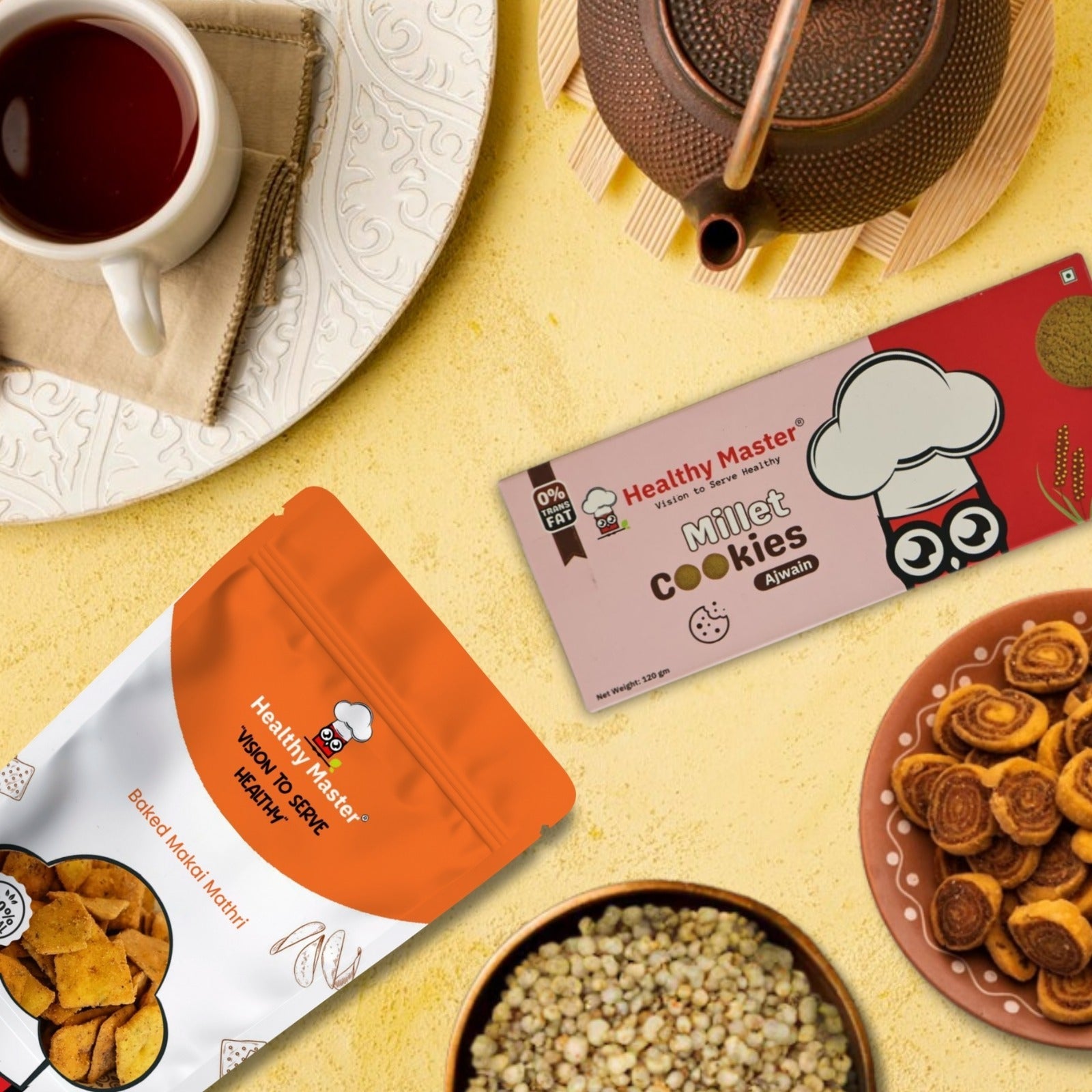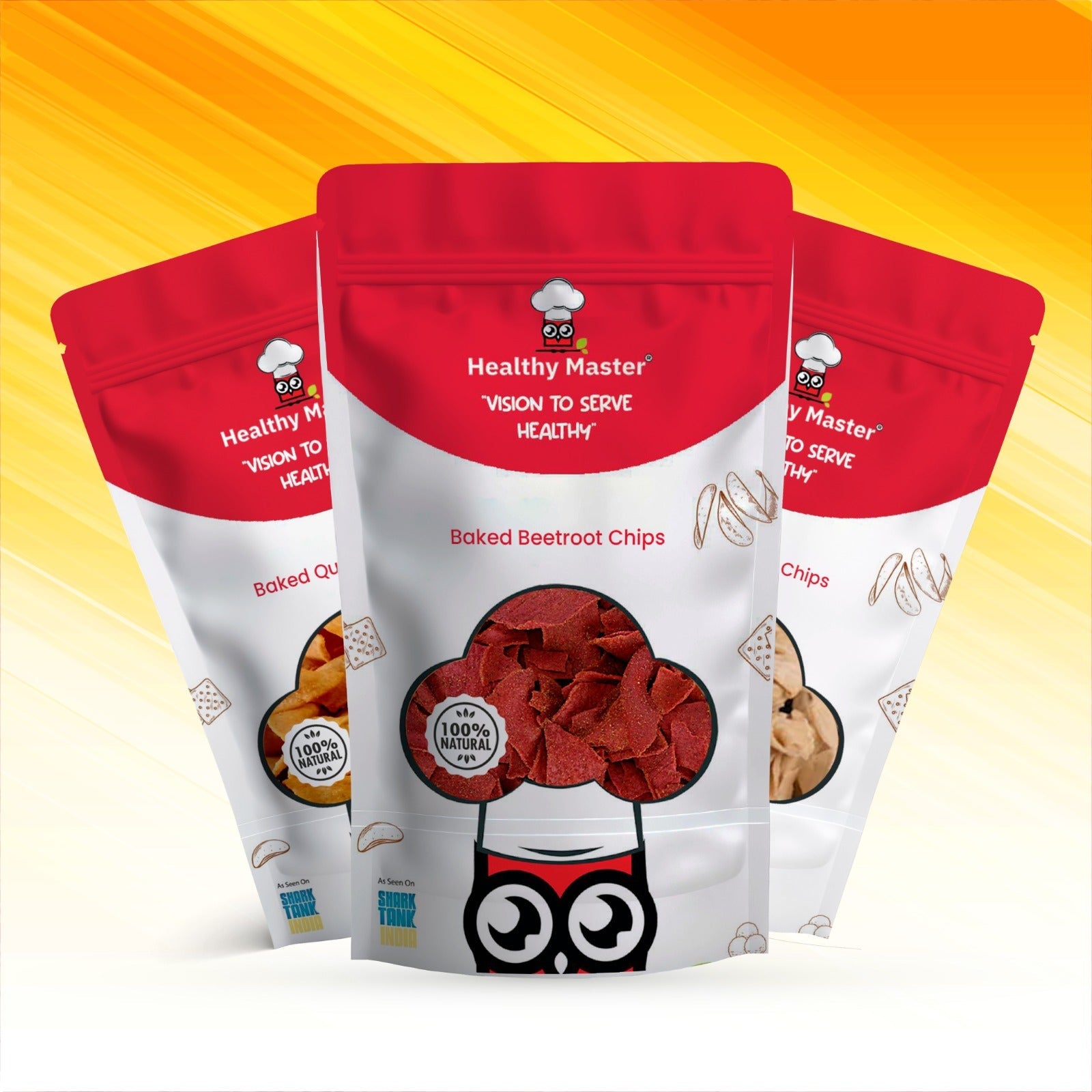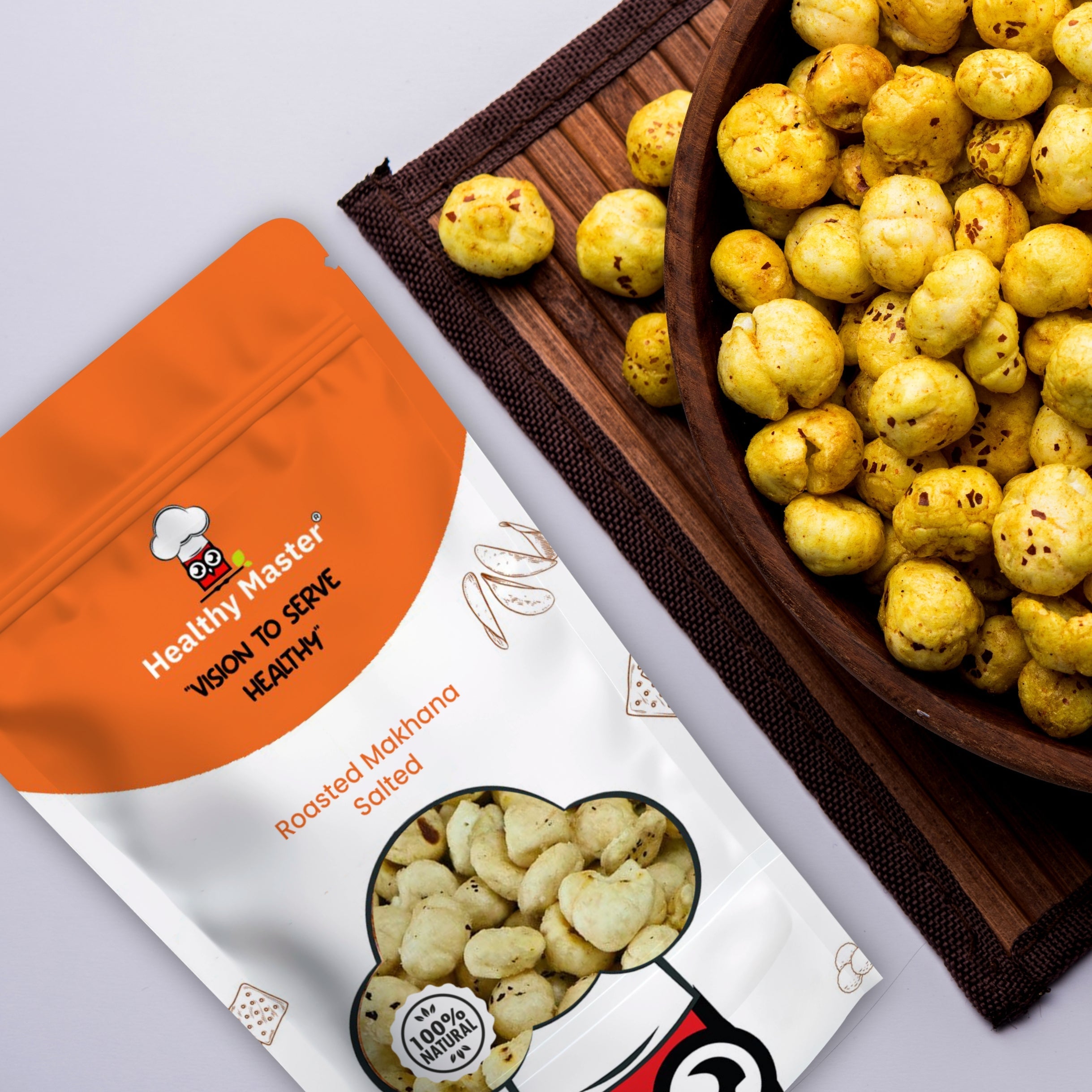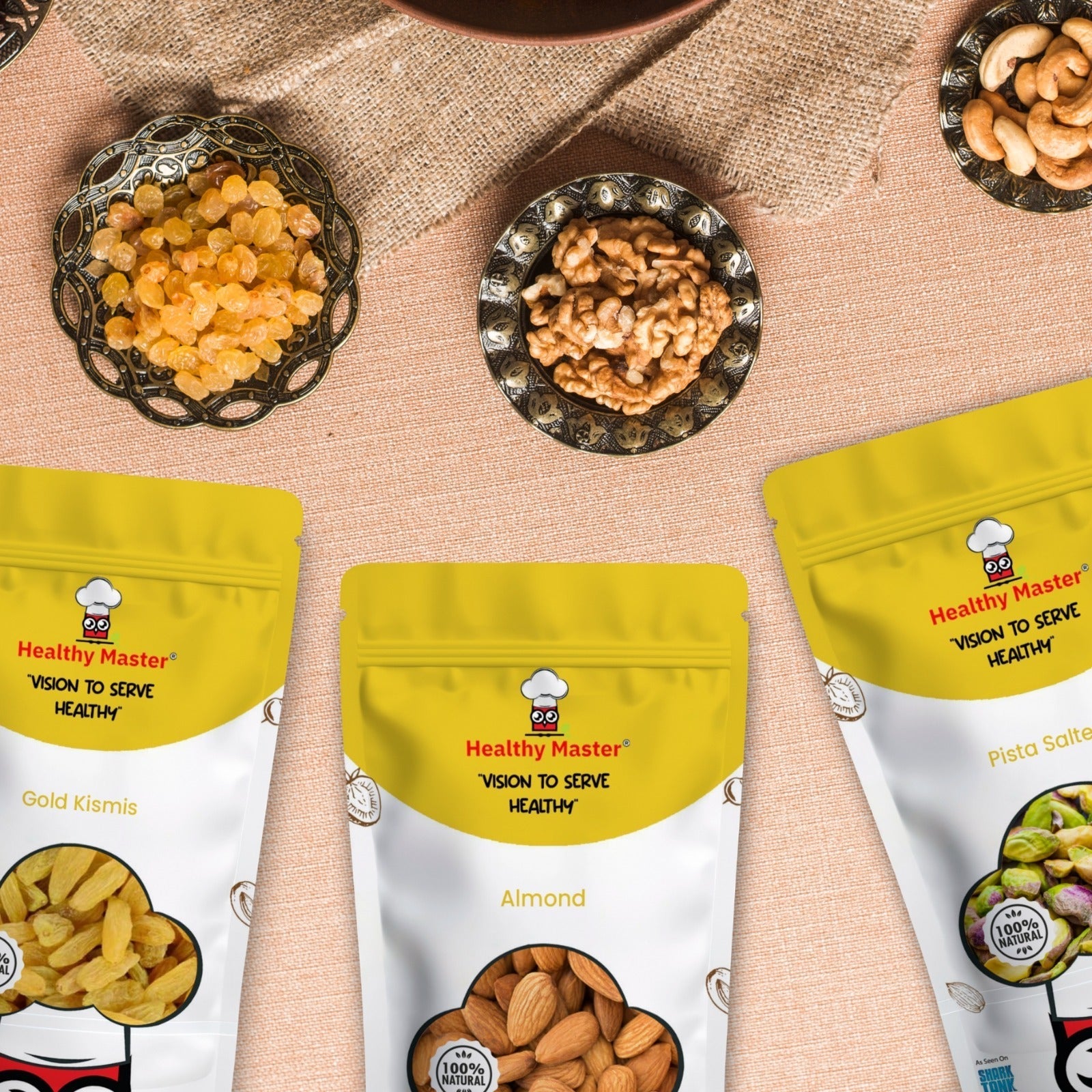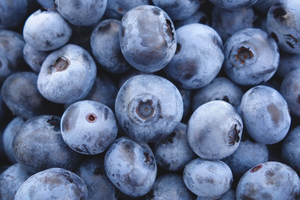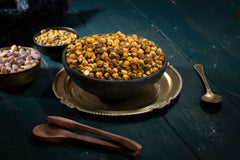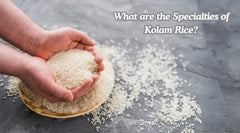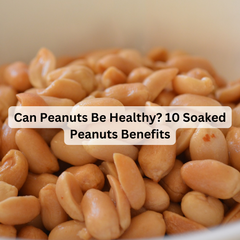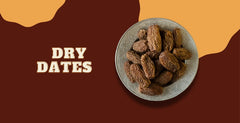Munakka, also known as black raisin, is one of the dried fruits that is full of health benefits. From constipation to cancer, it helps in fighting many diseases and keeps you healthy. Most people can eat it, but people with diabetes and some other diseases need to be careful.
Nutritional composition of Munakka
Munakka are rich in vitamins, sugars, minerals, and dietary fibers. All these have their own benefits for your health. Check out the table below to learn the nutritional composition of 100 grams of Munnaka in detail -
|
Nutrient |
Amount |
|
Calories |
299 |
|
Total Fat |
0.3 grams |
|
Saturated Fat |
0.1 grams |
|
Polyunsaturated Fat |
0.1 grams |
|
Monounsaturated Fat |
0.1 grams |
|
Cholesterol |
0 milligrams |
|
Sodium |
26 milligrams |
|
Potassium |
744 milligrams |
|
Total Carbohydrates |
79 grams |
|
Dietary Fiber |
4.5 grams |
|
Sugar |
65 grams |
|
Protein |
3.3 grams |
|
Calcium |
62 milligrams |
|
Iron |
1.8 milligrams |
|
Magnesium |
24 milligrams |
|
Manganese |
0.3 milligrams |
|
Phosphorus |
48 milligrams |
|
Potassium |
744 milligrams |
|
Zinc |
0.3 milligrams |
|
Vitamin C |
1 milligram |
|
Thiamin |
0.1 milligram |
|
Riboflavin |
0.1 milligram |
|
Niacin |
1.2 milligrams |
|
Vitamin B6 |
0.1 milligram |
|
Folate |
2 micrograms |
|
Vitamin K |
10 micrograms |
6 health benefits of Munakka
Loaded with so many nutrients, Munakka fruit has several health benefits. Let’s look at them one by one.
a) Constipation
Fiber is the most important nutrient for your digestive system. It helps in keeping the stool soft and bulky. This makes it easier to pass through the body. Munnaka is rich in dietary fiber.
100 grams of Munakka have 4.6 grams of dietary fiber. This makes it one of the best natural ways to relieve constipation.
b) Blood pressure
Potassium is one of the minerals that helps in blood pressure regulation. It does this by balancing the effect of sodium in the body. This is because if you consume sodium in excess, it can raise your blood pressure.
Munnaka dry fruit has 755 milligrams of potassium in it. This is 16% of the potassium that your body requires daily. That is why you should add Munakka to your diet if you have problems related to blood pressure.
c) Weight gain
Munakka fruit is a good source of natural sugars. 100 grams of munakka contain 65 grams of sugar. These make munnaka a healthy choice for weight gain.
It is also rich in calories. One-fourth cup of Munakka dry fruit has 150 calories in it. Another reason why munakka is good for weight gain is its high protein and fiber content.
d) Vision protection
Free radicals are unstable molecules that damage your vision. Antioxidants are natural fighters. They fight these radicals and protect your cells from damage. Munakka is a rich source of antioxidants and helps protect your vision.
e) Iron Deficiency
Munnaka is a good source of iron. One ounce of munakka fruit has 1.8 milligrams of iron. This helps in making more red blood cells that carry oxygen. If you have anemia, then adding munakka to your diet can help you.
f) Dry cough relief
Free radicals release a chemical when they damage cells. This can irritate the airways. This results in a dry cough. One of the ways to deal with a dry cough is by eating food that is rich in antioxidants.
Antioxidants fight these free radicals and protect your cells from damage. This stops the release of chemicals and treats dry cough. Munakka has antioxidants that can help with a dry cough.
Also read: 9 Amazing health benefits of munakka
Munakka vs. Kishmish: What’s the Difference?
Though both come from dried grapes, Munakka and Kishmish differ in appearance, taste, and nutrition. Kishmish is typically smaller, seedless, and golden or light brown in color, whereas Munakka is larger, darker, and often contains seeds. The difference lies not just in their looks but also in their health properties,
Also Read: How Many Kishmish to Eat Per Day.
When it comes to Munakka benefits, this variety is known for its natural sweetness, high fiber, and cooling effect on the body. It’s often used in Ayurvedic remedies for treating cough, anemia, and digestive discomfort. On the other hand, Kishmish is lighter and provides quick energy, making it ideal for snacks or desserts.
If you compare Munakka benefits and side effects, Munakka is slightly richer in antioxidants and iron than Kishmish. In fact, Munakka's iron content is often highlighted by nutritionists for those who struggle with low hemoglobin levels. While Kishmish provides quick energy, Munakka supports long-term wellness by improving digestion, blood health, and immunity.
Also Read: 10 Benefits of Soaked Raisins.
Among dried fruits, Munakka dry fruit benefits are more therapeutic in nature. Ayurveda often recommends soaking a few Munakkas overnight and consuming them in the morning for better absorption of nutrients. Regular use helps balance the doshas and supports internal cleansing. However, to truly appreciate the Munakka benefits, one must consume it in moderation; too much can lead to unwanted effects such as bloating or mild acidity.
When you weigh Munakka benefits and side effects, it’s clear that Munakka offers more medicinal value compared to Kishmish. Yet, understanding portion size and frequency ensures you enjoy all the Munakka dry fruit benefits without worrying about potential Munakka side effects, and one handful of Munakka can complete your nutritional needs.
Who Should Avoid Munakka?
While the Munakka benefits are widely praised, not everyone should consume it daily. People with high blood sugar levels should be cautious since Munakka is naturally sweet and can raise glucose levels if eaten excessively. Those with sensitive digestion or frequent acidity should also monitor intake.
Understanding Munakka benefits and side effects is crucial before adding it to your regular diet. For instance, the rich Munakka iron content can be extremely helpful for those with anemia, but it may not be suitable for individuals taking iron supplements or those prone to constipation.
Among the common Munakka side effects, overconsumption can lead to digestive discomfort, flatulence, or mild bloating. Since Munakka is dense in natural sugars, people with diabetes should consult their doctor before including it in their diet.
Even though Munakka dry fruit benefits are impressive—supporting better hemoglobin levels, gut health, and immunity—it’s wise to consume it moderately. Ayurveda suggests eating 4–5 soaked Munakkas daily for maximum Munakka benefits without any negative reaction.
In summary, learning about Munakka benefits and side effects helps you find the right balance. The Munakka iron content makes it a superfood for those with low energy or fatigue, but overindulgence can cause opposite results. Understanding these nuances helps you enjoy all the Munakka dry fruit benefits safely.
How Munakka Supports Digestive Health
One of the most underrated Munakka benefits is its impact on the digestive system. Rich in dietary fiber and natural enzymes, Munakka helps regulate bowel movements and prevent constipation. Soaked Munakka acts as a mild natural laxative, helping the body flush out toxins and improve nutrient absorption.
When discussing Munakka benefits and side effects, digestion plays a major role. Consuming it correctly—soaked overnight and eaten in the morning—enhances metabolism while minimizing Munakka side effects like bloating. The fiber in Munakka promotes healthy gut bacteria, while the high Munakka iron content helps strengthen intestinal function and overall vitality.
In Ayurveda, Munakka dry fruit benefits are closely tied to gut balance and detoxification. It’s often recommended for individuals with sluggish digestion, fatigue, or a weakened immune system. The fruit’s natural sweetness also reduces sugar cravings, supporting long-term digestive health.
To make the most of Munakka benefits, consistency and moderation are key. Eating 4–5 soaked Munakkas daily after meals can help regulate digestion, relieve constipation, and soothe acidity. However, understanding Munakka benefits and side effects ensures you get results without discomfort—too many can trigger gas or heaviness in sensitive individuals.
Ultimately, the Munakka dry fruit benefits go beyond digestion—they extend to immunity, energy, and overall wellness. By respecting portion size and soaking properly, you can unlock the full Munakka benefits while avoiding any unwanted Munakka side effects.
Side effects of Munakka
You should eat munakka in moderation. Even though it is rich in essential nutrients, excess can cause health problems.
We have listed the side effects of munakka for you below -
- Gas
- Diarrhea
- Allergic reactions
- High blood pressure
- Kidney problems
Precautions to take while eating Munakka
We all know prevention is better than a cure. Listed below are the precautions that you should keep in mind -
- Soak munakka in water before eating.
- If you have any health conditions, talk to your doctor before eating munakka
- Eat in moderation
- Avoid eating munakka if you are allergic to grapes
- Do not eat munakka if you have kidney problems
- If you are pregnant or breastfeeding, talk to your doctor before eating munakka.
- If you are giving munakka to a child, make sure they are old enough to chew them.
- Store munakka in a cool, dry place.
- Do not eat munakka that is moldy or discolored.
3 most efficient ways to add munakka to your diet
a) Munakka dried fruit (raw)
You can eat munakka in raw form to add it to your diet. Take 1 to 2 tablespoons of munakka and eat it once or twice a day.
b) Take munakka capsules (Draksha)
You can use Munakka capsules in your diet. It is easy to add to your diet as well. Take 1-2 capsules and swallow them with water after lunch or dinner.
c) Munakka Kwath
Munakka kwath is also known as a decoction. Take 2 to 3 tablespoons of munaka kwath and take the same quantity of water, and drink it after food twice a day.
Conclusion
Munakka is a good source of essential nutrients that your body needs. They have several health benefits. But you should eat them in moderation to avoid any potential side effects. If you are looking to buy Munnaka online, then visit healthymaster. in
Their natural and premium munnaka help in digestion, acidity, and provide dental care. They also help to strengthen your bones. So what are you waiting for? Grab yours now!!
Frequently Asked Questions
1. Can people with diabetes eat Munakka?
People with diabetes should consume Munakka in moderation. While munakka benefits include improved digestion and energy, its natural sugars may affect blood glucose levels if eaten in excess.
2. What are the major nutrients found in Munakka?
Munakka is packed with fiber, antioxidants, calcium, and especially Munakka iron content, which supports healthy blood levels and energy.
3. Is Munakka good for children and pregnant women?
Yes, when eaten moderately, Munakka dry fruit benefits include improved immunity and better hemoglobin levels, which are valuable for kids and expecting mothers.
4. How is Munakka different from regular raisins?
Munakka is darker, larger, and richer in iron compared to raisins. This makes Munakka's benefits and side effects slightly different—Munakka is more therapeutic, while raisins are lighter and sweeter.
5. Can Munakka cause allergic reactions?
Allergic reactions are rare but possible. If you experience itching or stomach discomfort, stop intake. Such Munakka side effects are generally mild.
6. Are there any side effects of eating Munakka daily?
Overeating can lead to bloating or acidity. Understanding Munakka benefits and side effects helps maintain balance. 4-5 soaked Munakkas a day is usually safe.
7. What is the best time to consume Munakka for health benefits?
The best time to enjoy munakka benefits is in the morning on an empty stomach after soaking it overnight.
8. Should Munakka be soaked before eating?
Yes, soaking enhances nutrient absorption and minimizes potential Munakka side effects, making digestion smoother.
9. Does Munakka help in improving hemoglobin or treating anemia?
Absolutely! The rich Munakka iron content supports better hemoglobin levels and helps prevent anemia naturally.
10. How can Munakka be included in the daily diet beyond snacking?
You can add soaked Munakka to smoothies, porridge, or salads. This boosts Munakka dry fruit benefits while adding natural sweetness to meals.


